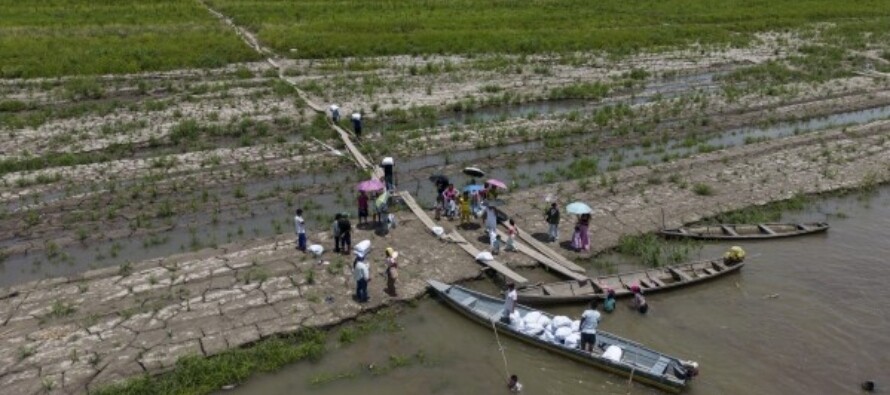
In the city of Leticia, Colombia, the inhabitants and local authorities are facing the consequences of a prolonged drought that has affected the Amazon River and nearby communities. Many fear that if this situation continues, some parts of the river may dry up completely in the coming year, potentially leaving the city without access to this vital resource.
One of the affected communities is La Playa, on the outskirts of Leticia, where Ermencida Miranda runs a small store. There, she sells cleaning products and food from various nationalities, as the area is the meeting point of three countries: Peru, Colombia, and Brazil. Despite the distribution of drinking water by Brazilian authorities and social aid from the government, Miranda has not seen evidence of these aids in her store.
The Amazon River, vital for the life of local communities, has experienced a significant decrease in water due to the droughts, which worries locals like Jugalvis Valencia, a boat tour guide with 35 years of experience in the area. The lack of water also creates difficulties in daily access to this vital liquid, as Miranda points out, recounting the scarcity of water resources for cooking and drinking, having to depend on rain or buy water in Leticia.
In this context, fishermen like Marciano Flores are forced to venture further downstream in search of fish, as the decrease in river flow has negatively impacted fishing. Flores describes his concern about the situation and mentions the importance of having stable water sources for the well-being of the community, especially in times of extreme drought.
Non-profit organizations and local governments have begun to respond to the crisis, delivering food, water supplies, and humanitarian assistance to the most affected communities. However, the situation remains critical, with water levels well below normal and serious difficulties accessing basic resources in some areas. Efforts to mitigate the effects of the drought are intensifying, with initiatives to explore underground water sources and provide support to the most needy communities.










